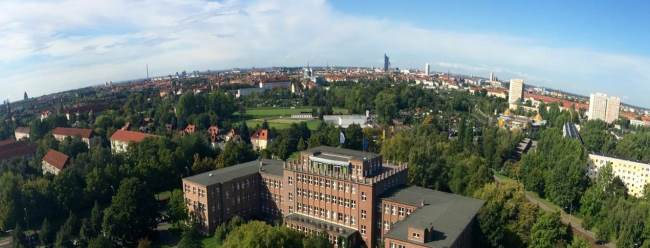
Projects of the Working Group
“Urban and Regional Research”
Integrated Platforms at UFZ
Our working group serves as exchange forum for the ongoing projects assigned to the current integration platforms of the program oriented research at UFZ that were launched at the beginning of 2021.
Associated Projects
The Housing-Integration-Nexus: shaping exchange and innovation for migrants’ access to housing and social inclusion (JPI Urban Europe)
Helmholtz Climate Initiative (Helmholtz)
uVITAL − User-Valued Innovations for Social Housing Upgrading through Trans-Atlantic Living Labs (BMBF)
Interval study „Housing and Living in Leipzig-Grünau“ (UFZ, City of Leipzig)
RECONNECT – Regenerating Ecosystems with Nature-base solutions for hydro-meteorological risk reduction (EU Horizon 2020)
ClimAlert: Climate Alert Smart System for Sustainable Water and Agriculture (BMBF)
Leipziger BlauGrün − Blau-grüne Quartiersentwicklung in Leipzig (BMBF)
Daniel Hertel: Apportioning energy contributions to the urban heat island in different urban climate zones. Supervisor: Prof. Dr. Uwe Schlink
Juliane Schicketanz: Assessing socio-spatial impacts on health of children in urban environments. Supervisor: Prof. Dr. Sigrun Kabisch
Food-water-energy for Urban Sustainable Environments − FUSE (SUGI, BMBF)
ANYWHERE - EnhANcing emergencY management and response to extreme WeatHER and climate Events (EU Horizon 2020)
EnRoute − Enhancing Resilience of Urban Ecosystems through Green Infrastructure (EU JRC)
Interval Study „Housing and Living in Leipzig-Grünau 2015“
emBRACE: Building Resilience Amongst Communities in Europe (EU)
Socio-demographic change in neighbourhoods of post-socialist European cities (HGF)
Evaluating Environmental and Life Quality to analyze Urban Vulnerability in Santiago de Chile (BMBF)
TIMBRE – Tailored Improvement of Brownfield Regeneration in Europe (EU)
Urban land use conflicts and options (POF II)
CLUVA – Climate Change and Urban Vulnerability in Africa (EU)
Mega-Trend Urbanisation: Vulnerability and Environmental Risks (POF II)
Political Participation in the context of periurban megaprojects in Santiago de Chile (PhD)
Catalyst: Capacity Development for Hazard Risk Reduction and Adaptation (EU)
Leipzig Weiter Denken – Auf dem Weg zur nachhaltigen Stadt (BMBF)
ClimateAdaptationSantiago (CAS) (BMU)
Polish and German large housing estates yesterday, today and tomorrow (DPWS)
CapHaz-Net – Social Capacity Building for Natural Hazards: Toward More Resilient Societies (EU)
Risk Habitat Megacity (Helmholtz Association)
Stadtklima Leipzig: Vulnerabilität gegenüber Hitzestress
Urban Woodlands (BfN)
Intervallstudie Leipzig-Grünau – empirische Langzeitstudie zur Wohnzufriedenheit in der Großwohnsiedlung (Stadt Leipzig)
→ Urban ecology in international comparison (HGF)
Models for Renaturing Brownfields: A Transatlantic View
conDENSE – Social and spatial consequences of demographic change for cities in East Central Europe (Volkswagen Foundation)
→ Preserving and developing urban regional open spaces under the conditions of growth and shrinkage (PhD) (HGF)
→ Interdependencies between residential relocations and transport in regions with demographical changes (PhD) (HGF)
Die Zukunft ostmitteleuropäischer Großwohnsiedlungen zwischen Akzeptanz und Abwertung (Helmholtz-Gemeinschaft)
Stadtumbau & Flächenhaushaltspolitik (UFZ/HGF)
Integrated assessment of land use change in urban regions (UFZ/HGF)
Nachhaltigkeitsmonitoring in schrumpfenden Städten
Reurbanisation of inner-city residential areas with respect to demographic change (Re Urban Mobil) (EU)
Umwelt- und Sozialatlas der Region Gran Concepcion, Chile (BMBF)
Binnen- und Außenimage von Johanngeorgenstadt (Zentrales Erzgebirge) (BMBF, IÖR, Land Sachsen)
Urban Life and Environmental Health – The Influence of Living Conditions on Children's Health
URBS PANDENS – Urban Sprawl – European Patterns, Environmental Degradation and Sustainability (EU)
Traffic generated fine and ultrafine particles in the city (HGF)
Social Atlas of the City of Leipzig (UFZ/HGF)
→ Zur Akzeptanz von gentechnisch veränderten Pflanzen: Bestandsaufnahme Orientierungsmuster und strategische Optionen (BMBF)
Umweltmentalitäten, Naturvorstellungen und Lebensstile in Ostdeutschland
Quality of Life in the Post-mining Landscape in Central Germany – Usage Preferences at Mine Lakes
Naturverständnisse in der Nachhaltigkeitsforschung
Socio-economic and Demographic Factors Relevant for Differentiation of Urban Spaces (BMBF)
Nachhaltigkeitsverständnisse von Wissenschaftlern am UFZ
Interdependencies between social, built and natural factors in residential areas (BMBF)
